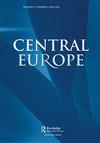The Austrian Political Police Abroad in the Age of Revolutions, 1830–1867: A Microhistorical Approach
IF 0.1
2区 历史学
Q2 HISTORY
引用次数: 0
Abstract
ABSTRACT This article investigates the formation of a transnational secret police corps in the Habsburg Empire in post-Napoleonic Europe. It shows that widespread anxieties in imperigal Austria following several nineteenth-century revolutions (1830, 1848) led to the recruitment of secret police agents, who operated across Europe. These agents were used to keep track of revolutionaries and radical organizations beyond the empire’s borders, who – in the authorities’ perception – might be detrimental for state security. The article uses a microhistorical approach to analyse this state institution and follows closely the lives and careers of several such agents. It thus delivers a transnational and ‘from below’ perspective on nineteenth-century Austrian state formation. This perspective, the paper argues, underlines the blurred and complex relations between state and society, and highlights the personal agency of obscure figures such as secret agents and police informers. 1 1 I would like to thank Alexander Maxwell, Christopher Clark, Brendan Simms, Frank Lorenz Mueller, and the two anonymous reviewrs for their insightful comments during the preparation of this article.在国外的奥地利政治警察在革命时代,1830年至1867年:一个微观历史的方法
摘要本文考察了后拿破仑时代欧洲哈布斯堡帝国跨国秘密警察队伍的形成。它表明,在19世纪的几次革命(1830年,1848年)之后,奥地利帝国普遍存在的焦虑导致了秘密警察特工的招募,他们在欧洲各地活动。这些特工被用来追踪帝国境外的革命者和激进组织,在当局看来,这些人可能对国家安全有害。本文使用微观历史的方法来分析这个国家机构,并密切关注几个这样的代理人的生活和职业。因此,它提供了一个跨国的和“自下而上”的视角来看待19世纪奥地利国家的形成。这篇论文认为,这种观点强调了国家与社会之间模糊而复杂的关系,并强调了秘密特工和警方线人等默默无闻的人物的个人代理。我要感谢Alexander Maxwell、Christopher Clark、Brendan Simms、Frank Lorenz Mueller和两位匿名评论者,感谢他们在本文编写过程中提出的富有洞察力的评论。
本文章由计算机程序翻译,如有差异,请以英文原文为准。
求助全文
约1分钟内获得全文
求助全文
来源期刊

Central Europe
HISTORY-
CiteScore
0.20
自引率
0.00%
发文量
7
期刊介绍:
Central Europe publishes original research articles on the history, languages, literature, political culture, music, arts and society of those lands once part of the Habsburg Monarchy and Poland-Lithuania from the Middle Ages to the present. It also publishes discussion papers, marginalia, book, archive, exhibition, music and film reviews. Central Europe has been established as a refereed journal to foster the worldwide study of the area and to provide a forum for the academic discussion of Central European life and institutions. From time to time an issue will be devoted to a particular theme, based on a selection of papers presented at an international conference or seminar series.
 求助内容:
求助内容: 应助结果提醒方式:
应助结果提醒方式:


